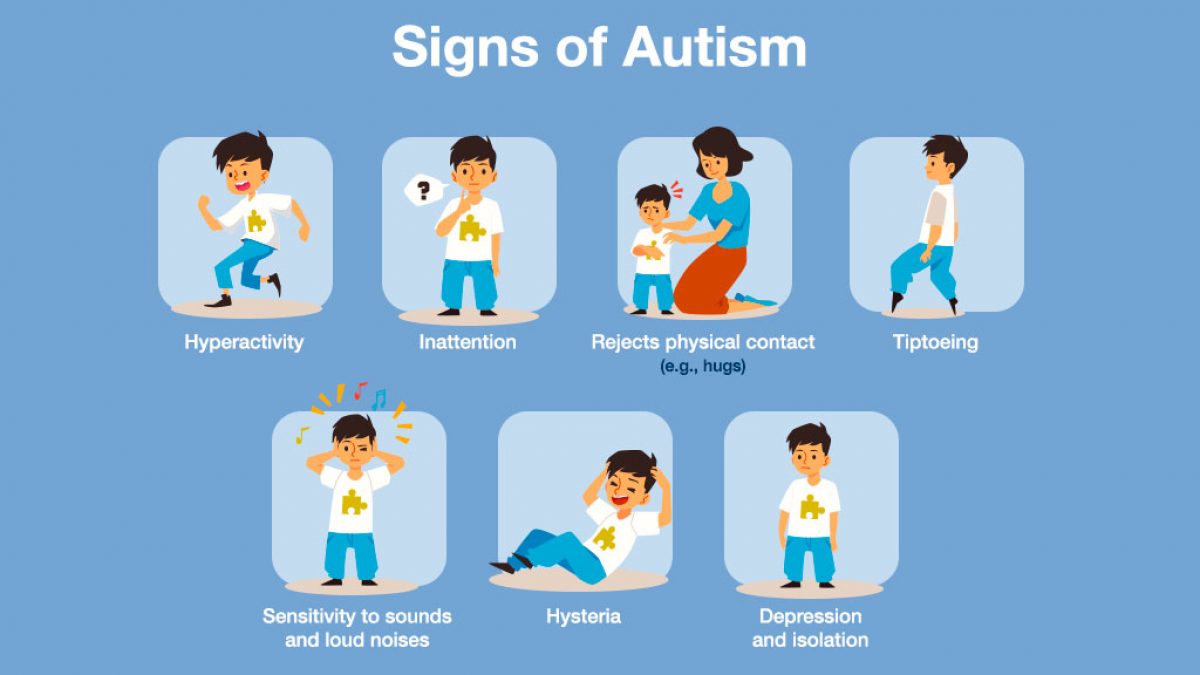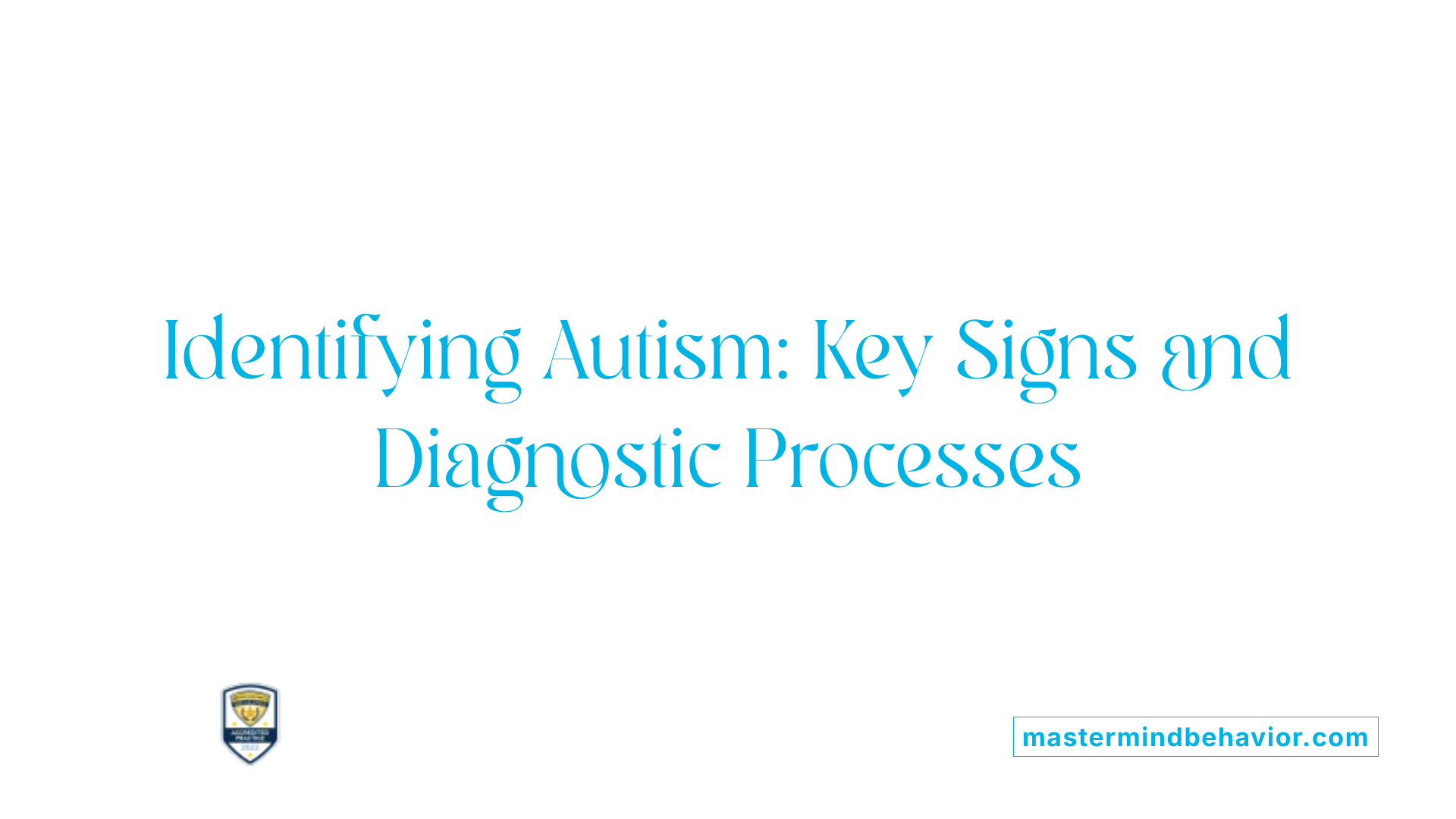How Autism Spectrum Therapies overcome nonverbal communication barriers
How Autism Spectrum Therapies overcome nonverbal communication barriers
Blog Article
Understanding the Effect of Behavioral Autism on Life and Social Communications
You could not understand how deeply behavior autism impacts daily life and social interactions. Individuals on the range often browse a globe filled up with interaction hurdles and sensory overload. These obstacles can lead to aggravation and seclusion, affecting their partnerships and overall health.
Specifying Behavioral Autism and Its Features
Behavior autism, typically described as autism spectrum disorder (ASD), incorporates a variety of conditions characterized by difficulties in social interaction, communication, and recurring actions. You could discover that individuals with ASD often struggle to translate social cues, which can result in misconceptions in conversations. They might find it tough to establish eye contact or take part in small talk, making social situations feel overwhelming.
Communication problems can materialize in various means, from postponed speech development to a choice for using fewer words. By recognizing these characteristics, you can foster an atmosphere that advertises acceptance and encourages efficient communication, helping people with autism prosper in their day-to-day interactions.
The Spectrum of Autism: Understanding Variability in Behavior
Autism range problem (ASD) isn't a one-size-fits-all diagnosis; it differs widely among people. You could discover that some individuals with ASD exhibit moderate signs and symptoms, while others might encounter a lot more considerable challenges. This irregularity can manifest in actions, interests, and sensory level of sensitivities. You might run into people that are extremely verbal and involve conveniently in discussions, while others may favor singular activities or connect non-verbally.
Furthermore, the way individuals with ASD reply to sensory input can differ substantially; some could be bewildered by loud noises or bright lights, whereas others flourish in boosting settings. The spectrum also consists of distinctions in social communications; some people might struggle to interpret social cues, while others browse social settings with family member convenience. Comprehending this variability is necessary, as it assists you value everyone's special experience and dressmaker assistance to their details needs, cultivating a much more comprehensive atmosphere for everyone.
Interaction Obstacles Faced by Individuals With Autism
When you communicate with people on the autism range, you might observe their distinct communication obstacles. They frequently encounter troubles with both nonverbal and spoken signs, which can influence their social interactions. Comprehending these barriers is vital for fostering better connections and assistance.

Verbal Communication Problems
Many individuals on the autism spectrum experience verbal interaction difficulties that can considerably impact their everyday interactions. Your tone, volume, or pace might not line up with social assumptions, causing others to misinterpret your objectives. Acknowledging these difficulties can assist you and your assistance network create techniques to enhance communication and cultivate better connections with others in your daily life.
Nonverbal Interaction Obstacles
Verbal interaction isn't the only obstacle individuals on the autism spectrum face; nonverbal communication barriers can be equally as considerable. You could find it tough to interpret body movement, faces, and eye contact, which are necessary for reliable interaction. These challenges can lead to misunderstandings or misconceptions of social signs, making communications feel frustrating or complex. You might have a hard time to share your very own emotions through nonverbal ways, leaving others unsure of your feelings or intentions. This disconnect can create sensations of isolation and irritation. Acknowledging these barriers is crucial for fostering understanding and compassion in your communications. By dealing with nonverbal interaction, you can locate strategies to improve your social experiences and improve your total high quality of life.
Social Communication Impacts
Social communications can frequently really feel overwhelming as a result of the unique interaction challenges dealt with by people with autism. You might have problem with analyzing social signs, making it difficult to comprehend sarcasm or body language. This can lead to misconceptions or uncomfortable moments in discussions. In addition, launching and maintaining conversations may feel difficult, causing stress and anxiety in social situations. You may choose organized atmospheres, making spontaneous interactions uneasy. It's additionally common to experience difficulty in participating in little talk, which can impede creating new friendships. Acknowledging these obstacles can aid you find methods to enhance interaction, such as practicing social abilities in risk-free settings or utilizing visual aids - Autism Behavioral Therapy. Understanding your needs permits you to navigate social interactions with higher confidence and ease.
Social Communication and Connection Building in Autism
While building partnerships can be challenging for people with autism, recognizing their one-of-a-kind point of views and communication styles can promote significant connections. You could see that lots of individuals on the spectrum like straight communication and might struggle More Help with social cues or tiny talk. By being straightforward in your communications, you can aid develop an atmosphere where they feel comfortable.
Engaging in shared interests can likewise offer as a bridge to deeper connections. Whether it's a hobby, a favorite show, or a mutual enthusiasm, these usual strings can open doors to relationship.
Every Day Life Regimen: Navigating Strategies and obstacles
Navigating life regimens can be particularly testing for people with autism, especially when unanticipated adjustments happen. You might locate comfort in having a structured schedule, as it assists you anticipate what's following. It's typical to feel overloaded or nervous when disturbances take place. To browse these challenges, think about carrying out visual timetables or lists. These devices can offer quality and reassurance.
Developing a regimen that includes sensory breaks can additionally be useful. You can prepare short breaks throughout your day to recharge. It's important to communicate with those around you, letting them recognize your needs and choices. This assists develop an understanding atmosphere.
Last but not least, method mindfulness techniques to handle stress and anxiety and anxiety. Simple breathing workouts or basing techniques can make a considerable difference. By integrating these techniques, you can boost your daily regimen and lessen disruptions, making life really feel more convenient.
Staminas and Capabilities of Individuals on the Autism Spectrum
Comprehending daily life regimens is simply one element of the autism experience. Lots of people on the autism range possess amazing toughness and abilities that establish them apart. You may find that your focus to information is phenomenal, permitting you to excel in jobs that need accuracy and focus. Your ability to assume outside the box can lead to ingenious remedies in different scenarios.
In addition, your memory skills typically radiate, especially in locations of interest. Autism Behavioral Therapy. This knack for maintaining information can make you a valuable resource in fields like art, innovation, or scientific research. You might likewise show strong visual reasoning, enabling you to imagine complicated ideas and solve troubles creatively
Furthermore, your special point of view on the globe can foster empathy and understanding in others, enhancing social interactions. Accepting these staminas not just boosts your confidence however additionally assists others value the varied talents you bring to the table.
Creating Inclusive Settings for Individuals With Autism
Developing inclusive atmospheres for individuals with autism starts with making sensory-friendly spaces that accommodate their distinct needs. You can additionally promote possibilities for social communication, aiding to build friendships and connections. check over here By making these changes, you'll add to a much more inviting atmosphere for everybody.
Creating Sensory-Friendly Spaces
While making sensory-friendly spaces, it's crucial to reflect on the special requirements of people with autism. Include peaceful areas where individuals can pull back and recharge when overwhelmed. Include aesthetic schedules or clear signage to aid people navigate the space with confidence.
Advertising Social Interaction Opportunities
Creating sensory-friendly areas not just addresses private comfort yet also establishes the phase for meaningful social communications amongst individuals with autism. Urge peer mentoring, pairing individuals with autism with encouraging peers that can direct them through social scenarios. By carrying out these methods, you can boost social chances, helping individuals with autism construct relationships and strengthen their social abilities in a secure, inviting atmosphere.

Regularly Asked Concerns
How Can Friends Support Someone With Behavioral Autism?
You can sustain a friend with behavior autism by being person, listening actively, and appreciating their borders. Engage in tasks they take pleasure in, communicate openly, and create a comfortable environment where they really feel valued and comprehended.
What Resources Are Readily Available for Moms And Dads of Kid With Autism?
You can check out various sources for parents of youngsters with autism, including support system, instructional web sites, and neighborhood social work. Connecting with various other parents can likewise supply important understandings and shared experiences to assist browse challenges.
Can Behavioral Autism Adjustment In Time?

Yes, behavioral autism can transform in time. You could observe changes in interaction, social skills, and actions as your kid grows. Early intervention and assistance typically play essential roles in these developmental adjustments.
Exactly How Do Sensory Sensitivities Impact Day-to-day Live?
Sensory sensitivities can This Site make daily experiences frustrating. You could fight with bright lights or loud sounds, bring about anxiety or avoidance. Discovering atmospheres that fit your demands can considerably boost your comfort and general every day life.
What Prevail Misconceptions Regarding Behavioral Autism?
You may assume behavioral autism just affects interaction skills, however it's even more complicated. Many assume people do not have compassion or knowledge, which isn't true. Comprehending these false impressions helps foster acceptance and assistance for those on the range.
Behavior autism, frequently referred to as autism range disorder (ASD), includes a variety of conditions defined by obstacles in social communication, interaction, and repetitive behaviors.Social interactions can usually feel frustrating due to the distinct interaction difficulties dealt with by people with autism.Designing sensory-friendly rooms not just addresses individual comfort but likewise establishes the stage for significant social communications among people with autism. Urge peer mentoring, combining people with autism with helpful peers that can direct them with social circumstances. By applying these approaches, you can boost social opportunities, helping people with autism develop friendships and strengthen their social skills in a safe, welcoming atmosphere.
Report this page